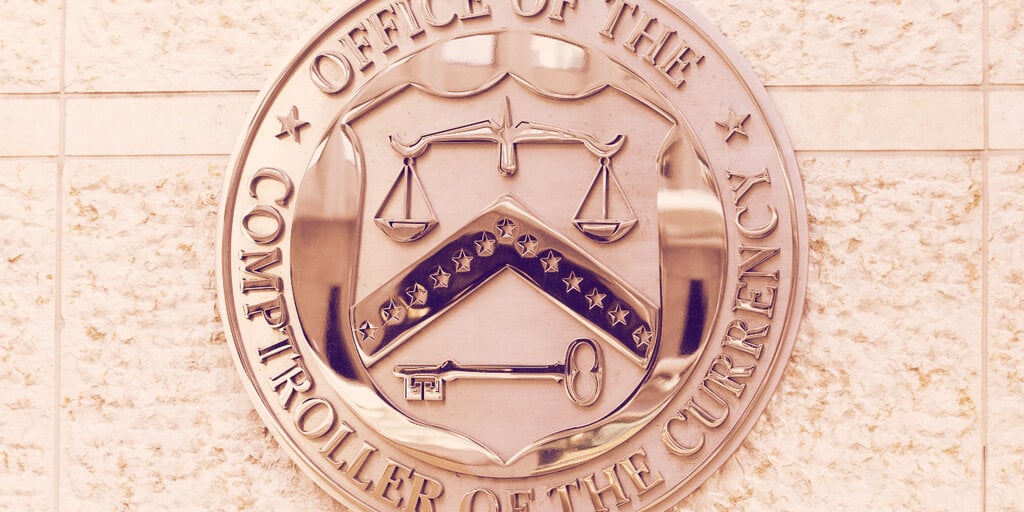The Acting Comptroller of the Currency, Michael Hsu, who was named to the position earlier this month by Treasury Secretary Janet Yellen, is wasting no time making a mark.
Hsu has ordered a review of several of the agency’s recent actions, including moves that gave it authority to provide cryptocurrency custody companies with banking licenses.
“My broader concern is that these initiatives were not done in full coordination with all stakeholders,” Hsu wrote in prepared remarks to the House Committee on Financial Services. “Nor do they appear to have been part of a broader strategy related to the regulatory perimeter. I believe addressing both of these tasks should be a priority.”
The Office of the Comptroller of the Currency (OCC), which is housed within the Department of the Treasury, regulates national banks and credit unions. Under the guidance of former Acting Comptroller Brian Brooks, a former Coinbase executive and current CEO of rival exchange Binance, the OCC took a strongly pro-crypto approach.
In January, the OCC issued guidance that banks could issue their own stablecoins, digital assets meant to mimic the price of another currency (e.g., the U.S. dollar) and rely on blockchains for payment activities.
Prior to that, Brooks’ OCC had launched a national FinTech banking charter allowing crypto companies to offer lending products.
But Brooks’ leadership also rubbed some policymakers the wrong way. In late 2020, a group of Democratic representatives argued that Brooks had demonstrated an “excessive focus on crypto assets and crypto related financial services.”
After the 2020 election, Financial Services Chair Maxine Waters wrote then-President-elect Joe Biden, urging him to rescind the OCC’s guidance.
“Your appointed officials at the Office of the Comptroller of the Currency (OCC) must also not assume, as their predecessors have, that a law Congress passed over 150 years ago somehow gives them authority to provide a national bank charter to non-bank fintech or payment companies,” she wrote.
Hsu will testify on Wednesday about regulatory oversight of depository institutions alongside the chairs of the National Credit Union Administration and the Federal Deposit Insurance Corporation, as well as the Vice Chairman of Supervision for the Federal Reserve Board of Governors.























